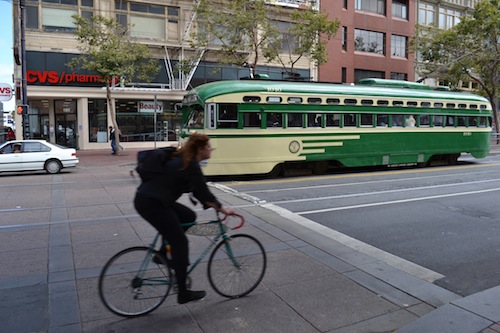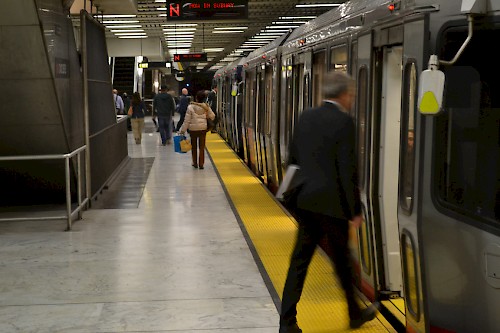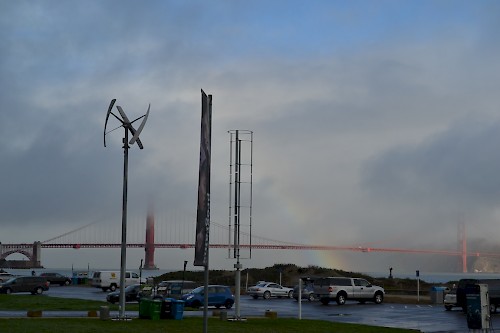Happening Now
The journey begins with lessons on making change
August 8, 2013
Written By Malcolm Kenton
The inaugural Millennial Trains Project journey has officially begun with a day of learning, dialogue and exploration in San Francisco, a city which—like most American cities—owes much of its prosperity and stature to the railroads. The San Francisco Bay was the terminus for the first transcontinental railroad and has always been the United States' primary gateway to trans-Pacific commerce and migration. Though California became a state before the railroad was completed, it was the railroad that truly made this a continental nation.

But while the original pioneers headed west, this journey is heading east. We began by hearing from two innovators in the Crissy Field Center, a model green building with a view of the iconically fog-shrouded Golden Gate Bridge. While their lessons were geared towards individual entrepreneurs, many can also apply to organizations like NARP that seek to be an effective force for positive change in the world.
Elizabeth Gore, Resident Entrepreneur at the United Nations Foundation, linked the idea of world-changing innovation to the train journey by noting that the world's most recognized icon, Mickey Mouse, began as a doodle on a napkin that Walt Disney did aboard a train. Successful ventures require action, partnerships, collaboration, and a sense of shared responsibility, she emphasized. All of an endeavor's stakeholders must be involved and given a voice at the outset and, similarly, young people need to be given a seat at the table, or else leaders run a significant security risk and will have failed the next generation.
Kamran Elahian, a first-generation immigrant from Iran who has started six successful Silicon Valley companies, emphasized that if you don't follow your heart, you will never be truly happy. He urged us to celebrate both success and failure, never to go it alone, figure out what is wrong and fix it, be honest and authentic, have a sense of humor, and keep the ego in check.

My first round of interviews with my fellow participants revealed a range of past experiences with passenger trains, but all expressed positive thoughts about trains' future and excitement about the possibilities for what may come out of this unique journey. All of us are impressed with the breadth of backgrounds and concerns that our fellow participants have brought to this project.
One fellow participant has taken the train often between her home in Seattle and her family in eastern Washington state, and says she chooses the train despite that driving takes two hours less because she values the time to decompress, enjoy the beautiful ride over the Cascades, and catch up on work or reading. Another always chooses the train over the bus between Washington, DC and New York City for the same reasons, but didn't know that trains went to other places outside the Northeast Corridor. A third has ridden many trains in Europe and India, but has never considered using them here mainly because his hometown of Louisville, KY lacks train service. But they all shared the desire to use trains more if they were more convenient and readily available.
This evening we have a Future of Transit event at Freespace, a space for communal art and collaboration in San Francisco's SoMa (South of Market Street) neighborhood. Report on that to come tomorrow. We will then be shuttled to Amtrak's Oakland Yard to board our private cars, which will be our home away from home for the ten-day journey back to DC. Stay tuned for more dispatches from the journey.

— Malcolm Kenton
"The COVID Pandemic has been and continues to be the biggest challenge faced by Americans as it has taken a deadly toll on the world and on the world’s economies. During COVID Locomotive Engineers at Amtrak and other Passenger and Freight Railroads have embodied the definition of essential workers. This dedication by our members is not new. We applaud the Rail Passenger’s Association for recognizing the vital contributions of our members and their hard work moving Americans and freight during the COVID pandemic."
Dennis Pierce, Brotherhood of Locomotive Engineers and Trainmen (BLET) National President
December 21, 2021, on the Association awarding its 2021 Golden Spike Award to the Frontline Amtrak Employees.
Comments